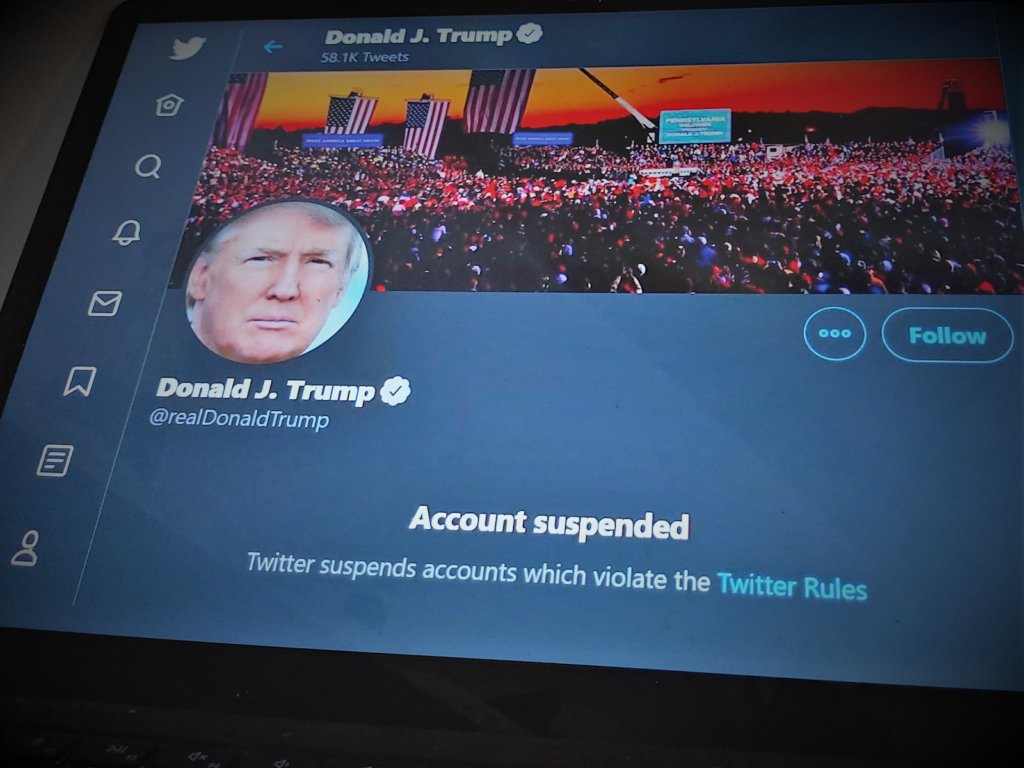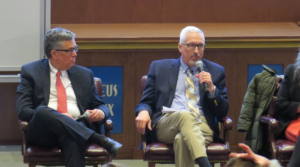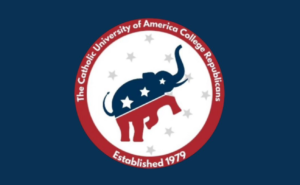Trump’s Removal from Twitter

Image courtesy of The Independent
By Franchetta Groves
Two days after the riot at the U.S. Capitol, Twitter made the executive decision to remove former President Donald Trump from the social media platform. Initially, Trump was banned from tweeting for a full 12 hours after the attempted insurrection on the Capitol building. However, less than three hours after an emotional meeting with Public Relations executive Vijaya Gadde, Twitter banned Trump from the app permanently.
Twitter CEO Jack Dorsey, however, wasn’t celebrating the decision and actually lamented what the decision meant for his vision of free speech and open internet. Dorsey has always found pride in the fact that Twitter was the platform that people could engage in discussions, debate, and free speech. His concerns were for the precedent that this has set and what the ramifications it will have. However, Dorsey felt that this decision was necessary for public safety.
“After a close review of recent Tweets from the @realDonaldTrump account and the context around them we have permanently suspended the account due to the risk of further incitement of violence,” said Twitter’s reasoning for banning Trump.
Not only was Trump’s account taken down, but many of his followers saw a suspension in their accounts. Twitter then made the decision to remove more than 70,000 users who were affiliated with the conspiracy theory group QAnon. Leading Republicans and conservative leaders saw a drastic drop in their following, and many have spoken out against the unchecked powers of big tech in the United States. Others, however, feel as though these actions have been a long time coming and feel as though Twitter made the right decision.
“The actions on January 6 showed the former President’s words have power to them,” commented sophomore Andrew Green, “Trump’s Twitter was a channel to entertain and persuade insurrectionists to attempt a coup on the US Capitol. When I created my Instagram page, I had to check that I would follow all rules and policies. Trump violated rules (even prior to the insurrection) and is finally being held accountable to some degree.”
Across the internet, platforms such as Facebook, Twitch, Snap, and Spotify banned Trump and some of his supporters from their platforms. The recent right-wing social media site Parler was taken down from the Google and Apple app stores and made unavailable for users. Social media platforms Instagram and Facebook followed Twitter’s lead and banned Trump indefinitely after he posted a video addressing the insurrectionists and telling them to go home while saying, “we love you, you’re very special.”
“The shocking events of the last 24 hours clearly demonstrate that President Donald Trump intends to use his remaining time in office to undermine the peaceful and lawful transition of power to his elected successor, Joe Biden,” Zuckerberg wrote in a post. “We believe the risks of allowing the President to continue to use our service during this period are simply too great.”
This decision by Twitter and other social media platforms has sparked and continued the debate of if big tech companies have too much power and are overstepping their boundaries.
“Twitter’s decision to ban President Trump, the former leader of the free world, from Its platform, sets a dangerous precedent that will have implications and ramifications for many years to come,” commented sophomore Blayne Clegg-Swann, “When conservatives attempt to create alternatives like Parler, they are quickly removed from the marketplace in a coordinated fashion. It’s becoming increasingly clear that free-market orthodoxy is failing to answer many of the questions and concerns that millions of Americans have. The solution to division is more voices, not less.”
While there has been a wide range of reactions to the decisions made by these social media companies, it is clear that the rhetoric that has come from the White House over the last four years has had lasting effects on the way our society views freedom of speech. especially online. As the new administration continues to lead, these are questions that may continue to plague political discourse and affect public policy.








